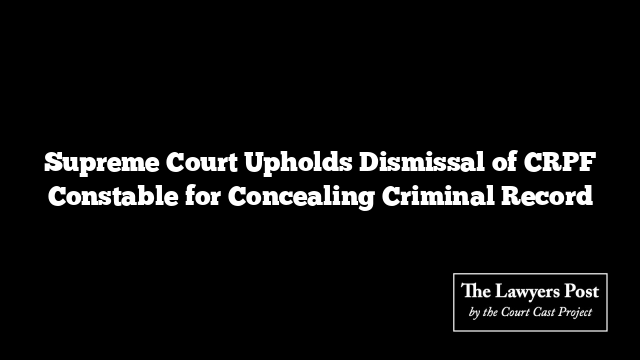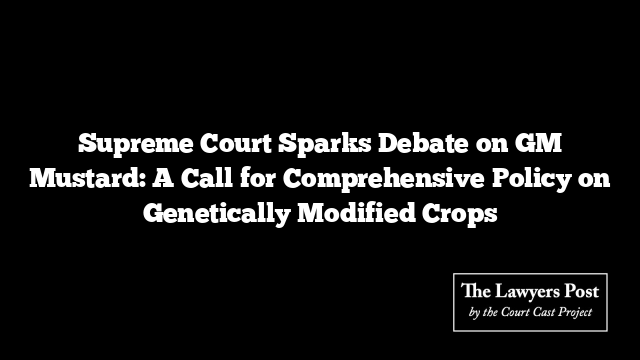The Supreme Court has underscored the need for high standards in law enforcement appointments, terminating the employment of a CRPF Constable who failed to disclose past criminal charges. The Court’s decision overturned a Gauhati High Court ruling that had reinstated the constable despite allegations of withholding crucial information during his recruitment process.
The controversy began when the constable, during his application process, was asked to declare any past arrests or prosecutions. Despite a warning about the consequences of providing false information, he stated he had no such history. However, a private complaint revealed the existence of two criminal cases against him. After a show-cause notice and subsequent disciplinary proceedings, it was confirmed that he had indeed concealed this information, leading to his dismissal.
The constable challenged the dismissal in the High Court, arguing that he was unaware of the charges at the time and that his youth might have led to an indiscretion. The High Court accepted this explanation and ordered his reinstatement. However, the Supreme Court found that the constable had been aware of the charges, as he had been taken into custody and granted bail before filling out the verification form.
Citing precedents that stress the importance of honesty and integrity in law enforcement, the Supreme Court ruled that even an acquittal does not automatically entitle someone to a job if they have previously lied or withheld information about criminal cases. The Court emphasized the need for strict standards in law enforcement roles due to the responsibilities they carry, such as maintaining public order and handling weapons.
In conclusion, the Supreme Court reinstated the disciplinary authority’s original decision to dismiss the constable, highlighting the critical importance of trustworthiness in law enforcement positions.





